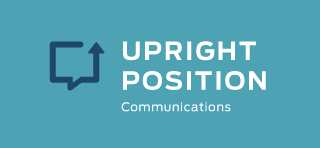The public understands when companies face service issues beyond their control – like big ol’ winter storms. During the holidays, that kindness quickly fades when all your competitors are back in business, and your company is still stuck in the snow like Southwest was during the most traveled time of the year: 16,000 canceled flights. Hundreds of thousands of unhappy customers. And the media clambering to get the story. The real story, not the one that was just about the weather. That’s when things went, uh, south for Southwest.
Their holiday story is a good lesson for PR pros and companies besides airlines.
Southwest’s actions will probably end up in textbooks under what not to do. Airlines usually have an advantage over smaller companies. Airlines have very engaged communications teams that mobilize quickly. They do an outstanding job conveying the message when something goes wrong. Weather issues turned into software issues, which is where the breakdown started.
As a PR practitioner, it’s critical to be in lockstep with the leadership team on what they know, what they want to reveal, and what the company can say. And then communicate. Southwest should have taken their former communications director, the late Kathleen Connelly’s advice – explain the cause, the effects, and what you’re doing to make it right. And she also advocated telling what you know quickly. Southwest missed on all counts.
Here are the crisis communications basics we want our clients to know.
- Say what you know.
- Don’t speculate on what you don’t know, and do relay information that you’re actively searching for answers.
- Be empathetic. A crisis impacts people – people who don’t usually face a crisis. They will look to you for guidance, information, and solutions.
A final word of advice.
Don’t delay sharing what you know, and be careful about what you share internally. It will leak.
In Southwest’s case, they were upfront with their employees, admitting the computer system was outdated. Unfortunately, the company kept blaming everything on the weather. The Pilots’ Association and several unions spoke out. The Wall Street Journal, New York Times, and other significant media covered their version of the story. Had Southwest moved quickly to publicly share what they shared internally, the airline would have had a chance to frame the narrative.
Remember, your staff, customers, and stakeholders will talk if they know something. Share important information before they do and keep control of the message, even when it’s bad news. Bad news always looks worse coming from secondary sources.
Crises happen.
Usually, they’re something companies can’t or didn’t control. What we can control is how we communicate about them. If your company needs help with crisis communications or any communications, Upright is here for you! Learn a little more about our approach here.
Reach out at uptake@uprightcomms.com to explore how we can help you frame your message, control your narrative, and reach the right stakeholders.
